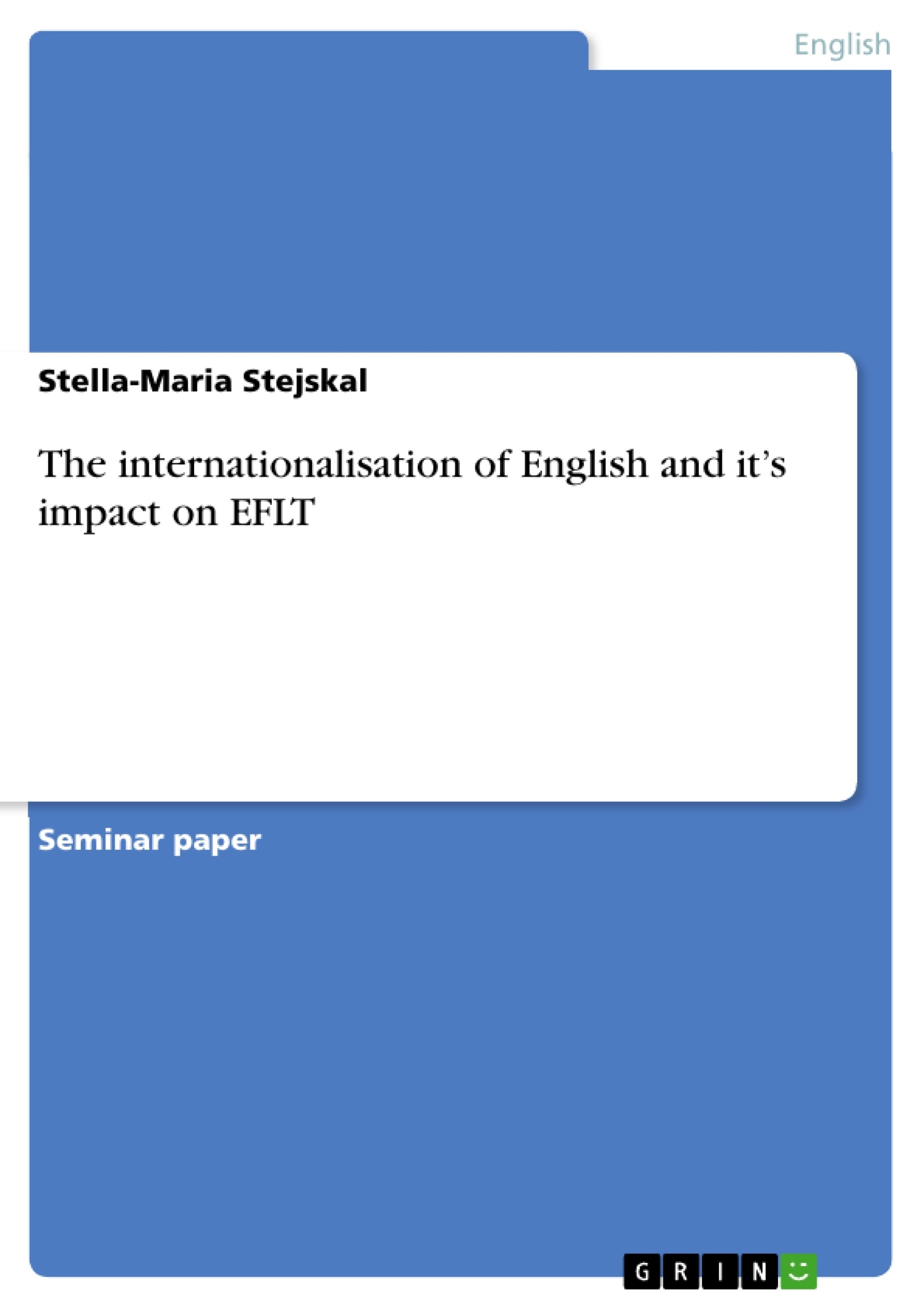The issue the paper at hand raises is first of all, why did that happen? Why is English recognised as the international language?
Secondly what impact has this on the English language itself, explicitly on the teaching of the language and the pedagogy that stands behind it?
What has to be taken into account under that aspect is further the fact that English is no longer merely used for communication with and between “Native-Speakers”, but also and increasingly for communication between “Non-native-Speakers” (whoever might be categorised as such). English is no longer “just” the language of the American, the British, the Irish, the Australian, the New Zealand, the Canadian, the Caribbean, and the South African, but also has the role of being the international language.
Table of Contents
- Introduction
- Why is English the international language?
- EIL and ELT
- Native (NS) vs. Non-Native Speakers (NNS) of English
- Self-Perception of NNS English Teachers
- Student perception of NNS English Teachers
- What is a “native speaker” and what is “mother tongue”
- A Critical Pedagogy
- How critical are future teachers?
- The present situation in Switzerland
- Native (NS) vs. Non-Native Speakers (NNS) of English
- Conclusion
Objectives and Key Themes
This paper explores the rise of English as the international language and its impact on English language teaching (ELT). It examines the historical and contemporary factors that have contributed to English's global dominance, delving into the complex issue of native speaker (NS) versus non-native speaker (NNS) roles in ELT.
- The historical and contemporary factors leading to English's international status
- The impact of English as an international language (EIL) on ELT
- The perceptions of NNS English teachers by themselves and their students
- The significance of the terms "native speaker" and "mother tongue" in the context of EIL
- The concept of critical pedagogy and its potential to promote positive changes in ELT.
Chapter Summaries
- Introduction: This chapter establishes the context for the paper, highlighting English's status as a lingua franca and its evolving role in global communication. It introduces the central questions: why is English the international language, and what implications does this have for the teaching and learning of English?
- Why is English the international language?: This chapter examines the historical and contemporary factors that have led to English's global dominance. It discusses the influence of British colonialism, American economic and political influence, and the rise of globalization and technology.
- EIL and ELT: This chapter explores the impact of English as an international language on ELT. It addresses the ongoing debate surrounding the roles of NS and NNS English teachers, analyzing the perceptions and experiences of both groups.
- Native (NS) vs. Non-Native Speakers (NNS) of English: This chapter delves into the complex issue of NS versus NNS in ELT. It examines research on the self-perception of NNS teachers and how students perceive NNS teachers, highlighting the ongoing debate about the significance of native speaker status in the context of EIL.
- What is a "native speaker" and what is "mother tongue"?: This chapter critically analyzes the terms "native speaker" and "mother tongue" in relation to EIL. It discusses the limitations of these terms in a globalized context and proposes alternative perspectives.
- A Critical Pedagogy: This chapter introduces the concept of critical pedagogy in ELT, arguing for a more critical and reflective approach to language teaching that considers the social, cultural, and political contexts of language learning.
- How critical are future teachers?: This chapter presents the findings of a study examining the views of future teachers on EIL. It highlights both the persistence of traditional perspectives and an emerging openness towards the international dimension of English.
- The present situation in Switzerland: This chapter provides a brief overview of the current situation in Switzerland, examining how the country's English language curriculum and teacher training programs address the changing landscape of EIL.
Keywords
This paper focuses on key concepts like English as an international language (EIL), native speaker (NS), non-native speaker (NNS), English language teaching (ELT), critical pedagogy, and the impact of globalization and technology on language learning.
- Quote paper
- Stella-Maria Stejskal (Author), 2006, The internationalisation of English and it’s impact on EFLT, Munich, GRIN Verlag, https://www.hausarbeiten.de/document/111676


